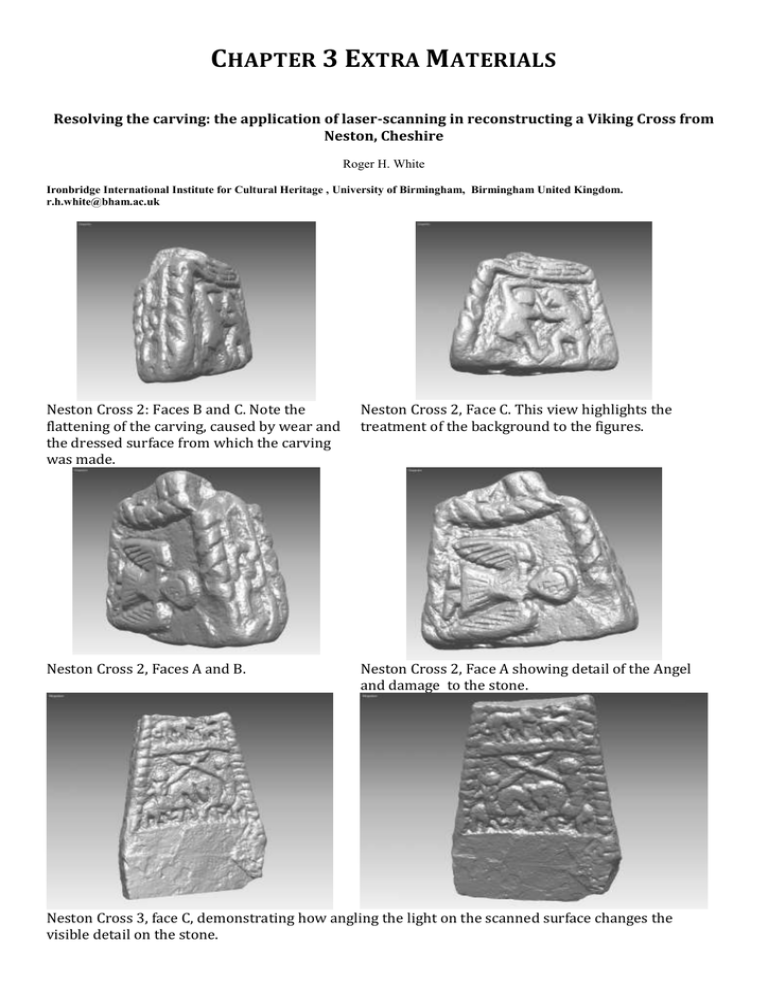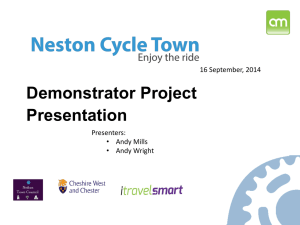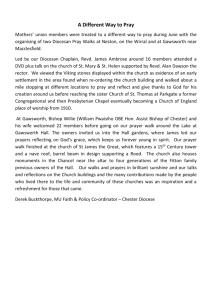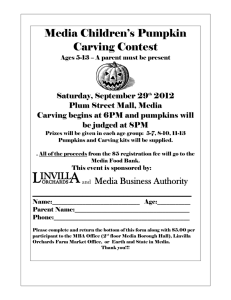Chapter03-ExtraMaterial-Description.doc
advertisement

CHAPTER 3 EXTRA MATERIALS Resolving the carving: the application of laser-scanning in reconstructing a Viking Cross from Neston, Cheshire Roger H. White Ironbridge International Institute for Cultural Heritage , University of Birmingham, Birmingham United Kingdom. r.h.white@bham.ac.uk Neston Cross 2: Faces B and C. Note the flattening of the carving, caused by wear and the dressed surface from which the carving was made. Neston Cross 2, Face C. This view highlights the treatment of the background to the figures. Neston Cross 2, Faces A and B. Neston Cross 2, Face A showing detail of the Angel and damage to the stone. Neston Cross 3, face C, demonstrating how angling the light on the scanned surface changes the visible detail on the stone. Neston Cross 3, Face A. Demonstrating how much detail the scan can bring out of the figures and the background. Neston Cross 3, Faces A and B showing the relatively slender nature of the slab and the cable moulding at the edges. St John’s Cross Head demonstrating the two joining fragments and the greater thickness of the cross. This was digitally edited to reduce it to the same thickness and the Neston crosses. The Neston Cross as reconstructed. Note the slimmed version of the cross head. The upper part of the couple on Face A have been restored but there has been no attempt to fill in the detail on Face C. Faces B and D demonstrate how the patterns were projected to fill the space available.



